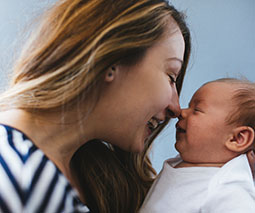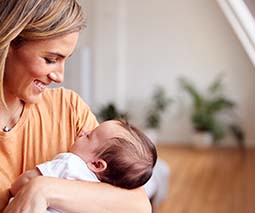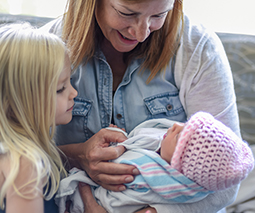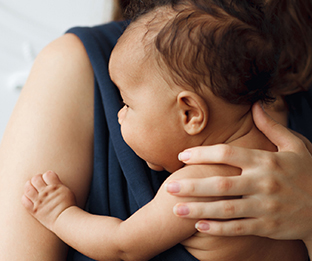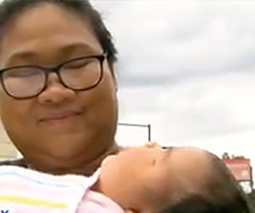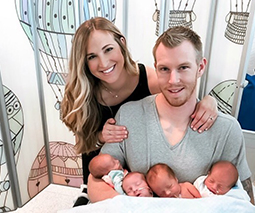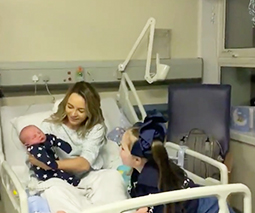It’s time to bring baby home. So what happens next?
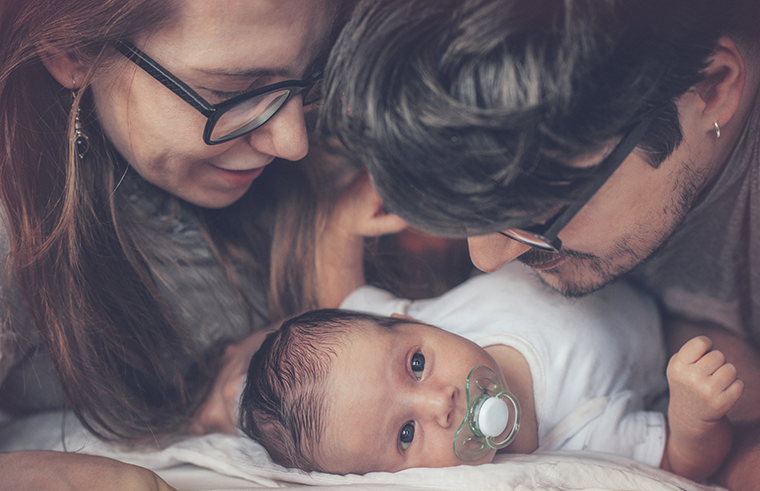
After months and months of pregnancy, followed by hours (not days, we hope!) of labour, you finally have your baby in your arms and you’re utterly in love.
You’re existing in that happy baby bubble, and the rest of the world can wait a while.
But eventually – and for some, it happens pretty quickly – you have to leave the sanctuary of the hospital to take your baby home. And this can be a daunting moment indeed.
Dianne Zalitis, midwife and Clinical Lead of Pregnancy, Birth & Baby, sheds some light on what you can expect when you bring home the newest member of your family.
Listen to Dianne Zalitis on Feed Play Love
How will I cope when I go home?
While a truly wonderful time, those early days of becoming a parent can be overwhelming and exhausting and Dianne often hears of new parents who walk in the front door with their baby and ask, “Now what do I do?”
“The first thing to remember is that you’re not going to do anything that will hurt your baby and you won’t break them,” says Dianne. “But preparation is really helpful.”
One suggestion is to cook up food for the freezer so you have meals ready at a moment’s notice. “Accept help when people offer it and or ask for it when people come over,” she says. “Just remember, though, that there are also phone services and your early childhood health clinic, so there are people out there.”
The challenge of breastfeeding
One of the first things you and your baby have to face is breastfeeding, which is not always straightforward. While it’s a natural process and the midwives in hospital will offer enormous help, Dianne advises giving yourself time to get on top of it. “The thing with breastfeeding, you and your baby are learning how to do it,” she says. “It can take weeks to feel like you’ve mastered this and got the hang of it,” she says.
Dianne stresses again that there’s help out there. “As long as you want to breastfeed, support is out there for you, from your early childhood nurses to the Australian Breastfeeding Association,” she says. “It does take a couple of weeks, to get the hang of it; it takes about three or four days [after birth] for your milk to come in and feel like your baby’s getting lots and then that’ll settle back off so there are lots of changes – and in amongst all of that is your tiredness and your learning about the baby.”
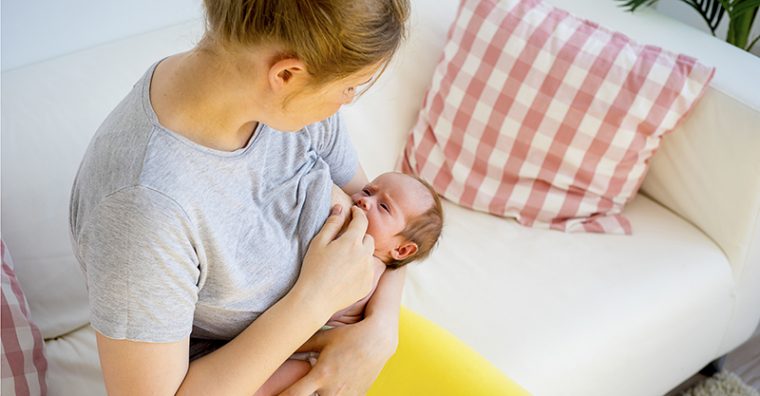
However if breastfeeding is just not working for you, Dianne says the decision to stop is a personal one, and one that only the mother can make. “Certainly we always recommend breastfeeding for as long as you can because it is the milk designed for your baby, so it’s the best,” she says. “There’s nothing wrong with formula and if you need to do that, then your baby is not going to suffer from that but it’s got to be your choice.”
According to Dianne, successful breastfeeding also depends on partner and family support. “You need people around to really help you and believe in you and your ability to do this and give you the space – and you’ll get to that point,” she says. “You’ll see other mums with babies who might be six or eight weeks old and they’re almost feeding without thinking about it and that’ll be you, too.”
Aches and pain
As a new mum who’s just been through birth, you’ll probably feel a little sore when you come home. “Those first few days afterwards, lots of things are going to hurt,” says Dianne. “You might be surprised how many general muscle aches and pains you have because labour and birth is a significant physical workout.”
Dianne explains that a vaginal birth can leave you feeling exhausted and tender, while a caesarean birth will provide some wound pain. “The thing with caesareans is you can have wound pain and discomfort for quite a few weeks,” she says. “So that can be a surprise too when you get home, that it’s still sore after two or three weeks.”
The first check up
When your baby is six weeks old, it will be time for you both to go to the doctor for a check-up. “That’s when you and your baby get the once over and your doctor’s checking to see that everything is healed and everything’s gone back to where it was before you had your baby,” says Dianne. The doctor may also discuss your contraception, which is important at this time, unless you want baby number two on the way!
All that paperwork
Along with your baby, comes official paperwork, all of which is important and must be addressed early on. “You’ll be given a big envelope, the parent pack after you’ve had your baby and then that will be a form to pop your baby onto your Medicare card,” says Dianne. “It’s really important to do that, because until you do that, you can’t access Medicare for all of the GP visits and things like that.”
There are also the baby’s birth registration papers and until your baby is registered, she won’t exist in the system. “And if you don’t do that by 60 days, you’ll get in trouble and they’ll send you a fine,” says Dianne.
And apart from taking care to keep all the paperwork safe and up-to-date, Dianne recommends that parents agree on the spelling of the baby’s name before one of them goes off to make it official. “That can be a funny thing,” she says.
Or not so funny, depending on what ends up on the birth certificate!
